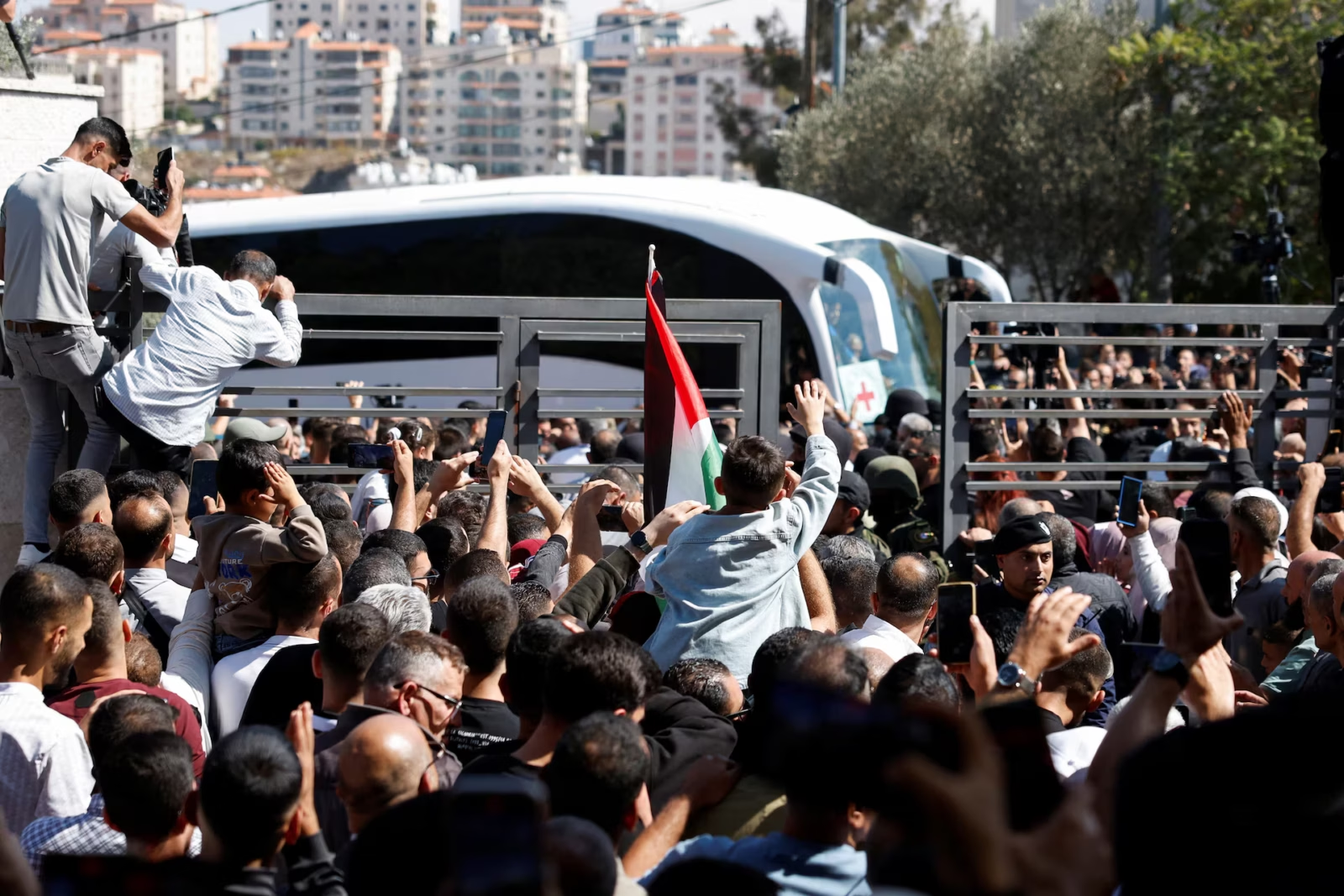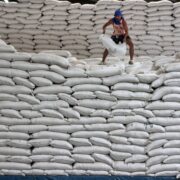Iran out in the cold as Mideast unites in support of Gaza ceasefire

CAIRO—As the Middle East broadly welcomes a ceasefire in the Israel-Hamas war, Iran finds itself at one of its weakest moments since its 1979 Islamic Revolution.
Tehran has operated its self-described “Axis of Resistance” over several decades, supporting militant groups and nations allied with it against Israel and the United States. But as Israel bombed the Gaza Strip, it also turned its crosshairs toward top leaders abroad in groups like Hamas, Lebanon’s Hezbollah and even the top echelon within Iran’s military and its nuclear program—killing many and disrupting their ability to fight back.
President Donald Trump arrived in Israel on Monday to the cheers of people hours before the release of the 20 remaining Hamas hostages. It is a Middle East trip that likely will see him praised by Israel and Arab nations, but Iran won’t be at the table as it still struggles to recover from June’s 12-day war.
Theocracy
How Tehran’s theocracy responds in the weeks and months ahead, whether that means lashing out or trying to rebuild its hobbled economy at home, will be crucial.
“Undoubtedly, this is not a proud moment for Iran,” said Ali Vaez, the Iran project director at the International Crisis Group. “Its alliance system in the region is in ruins, but it doesn’t mean that the ‘Axis of Resistance’ is no more.”
Iranian state media has sought to describe the Gaza ceasefire as a victory for Hamas, despite the war destroying the Gaza Strip and killing over 67,000 Palestinians, according to the Hamas health ministry.
Perhaps more tellingly, an adviser to Iran’s 86-year-old Supreme Leader Ayatollah Ali Khamenei suggested the ceasefire would only lead to conflict elsewhere in the region.
“The start of the ceasefire in Gaza may be the behind-the-scenes end of the ceasefire somewhere else!” Ali Akbar Velayati wrote on X, referencing Hezbollah, Yemen’s Iranian-backed Houthi rebels and Iraq.
The fear of further Israeli strikes, particularly on Iran, remains acute in the public’s mind as much of its air defenses likely were destroyed by Israel in June.
Khamenei has not resumed his usual routine of weekly speeches to audiences. Meanwhile, Iran without explanation, avoided holding a major military commemoration marking the end of the Iran-Iraq war in September.
Weakened economy
Iran’s economy has also suffered under international sanctions, and as global energy prices fall.
“Iran has always focused on its interests, we do not have resources anymore, our economy has weakened,” said Tehran-based analyst Saeed Leilaz. “Our support for Hamas was a reaction to the United States to divert conflicts from our borders.”
“Iran is like a bankrupt gambler after winning some small money in the first rounds,” said Amir Kazemi, a university student in Tehran. “When Hamas attacked Israel, Iran was happy about it. But now, after the ceasefire, Iran finds nothing in its pocket.”
In the immediate years after Iran’s revolution, its theocratic government sought to export its Shiite revolutionary ideology more widely in the Middle East. That morphed following its devastating 1980s war with Iraq into more of an effort to provide a level of deterrence as Arab nations around it bought sophisticated American bombs, warplanes and tanks Tehran couldn’t access due to sanctions.
The US military’s presence across the Persian Gulf also expanded following the 1991 Gulf War, with Arab nations granting basing rights to American forces, to Tehran’s constant anger.
The peak of the “Axis of Resistance” came in the chaotic years after the 2003 US-led invasion of Iraq and Yemen’s subsequent collapse into a civil war. Then, it could count on Hezbollah, Syrian dictator Bashar Assad, the Houthis, Iraqi militant groups and even Hamas.
Today, the Middle East looks far different. Rebels overthrew Assad last year, Israeli strikes killed Hezbollah and Hamas’ top leaders, while Iraqi militant groups faded into the background. The Houthis, while still capable of launching attacks on Israel and commercial shipping, find themselves now targeted by increasingly precise Israeli strikes.

















